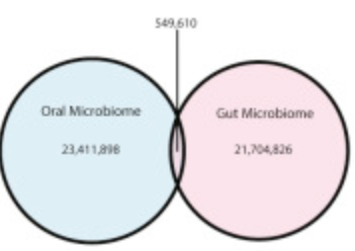Alongside trillions of bacteria, our microbiome is home to many fungal species and researchers are only just starting to investigate how they influence human health and metabolism animaxx3d/Depositphotos
While most microbiome scientists focus on gut bacteria, a new school of research is starting to look at how the communities of fungus in our bodies, called the mycobiome, can influence our metabolic health. A newly published animal study suggests fungal diversity may play a role in weight gain.
Trillions of micro-organisms live inside each of us. This is our microbiome. The vast majority of these microbes are bacteria. Arguably one of the most significant areas of medical research over the past couple of decades has been the growing understanding of a symbiotic relationship between our general health and the bacteria we house.
Most microbiome research has focused on gut bacteria, however, there are other microbes that call our digestive system home including parasites and viruses. Less than 10 years ago, a landmark study was the first to definitively show a rich community of fungi also live in our microbiome.
Looking forward, the next steps for the researchers behind this new study will be to further investigate the links between metabolism and the fungal mycobiome. Willis and Stewart hypothesize the intimate functional relationship between fungal communities and bacteria may fundamentally influence how our microbiome affects our metabolism.
https://newatlas.com/health-wellbeing/fungal-mycobiome-gut-bacteria-microbiome-health-metabolism/

